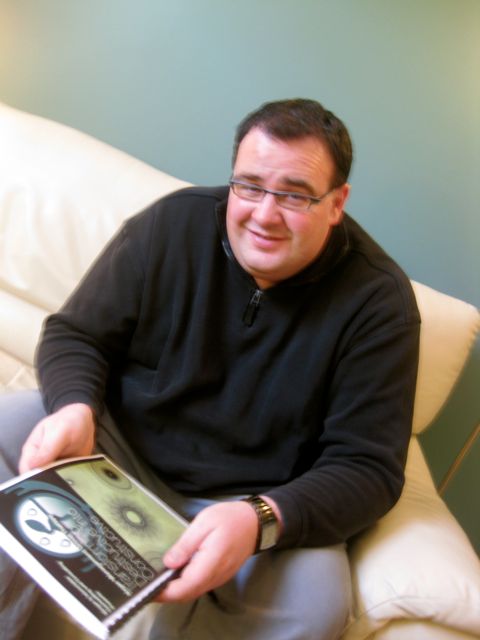Rosie O’Donnell has admitted her regrets, and learned from them. We can all learn from them.
The other day, I had a rare opportunity to watch an episode of Oprah. Oprah was interviewing Rosie O’Donnell.
Rosie had an infamous falling out with the TV talk show, The View, where she had been a regular part of the host team.In particular she and Barbara had a conflict…I was interested in this because I had listened to a recording of Barbara Walters autobiography last summer.
A portion of the discussion is found here (sorry, the video cannot be embedded–Oprah likes you to visit her site)
I thought it was really insightful of Rosie when she said: “Yes, I do, I do regret that moment…I was demanding from her an emotional connection with her that I don’t think she was capable or willing to give me, and that maybe I had no right to ask for.”
If we are honest with ourselves in quiet stillness (when/if we allow ourselves to “go there”), there are times when our reactions to people have a deeper element. The powerful surface emotions are expressed for reasons which are buried and significant–there but almost out-of-conscious-reach.
In my opinion, the most important part of the conversation happened immediately after this video clip, which happened like this:
Oprah: The point is: You thought she should have come to your defence.You were hurt.
Rosie: I was hurt….At that moment, if I had been braver, I would have just cried and said, “you really hurt my feelings”.
Oprah: That is so interesting, that you would say, “If I had been braver I would have just cried.” Because often times crying is perceived as the weak thing to do.Why do you say braver?
Rosie: Because then you’re vulnerable.Because the authentic feelings I had was pain and hurt and rejection.
Oprah: And instead you stood up and [were angry]
Rosie:Of course, because that’s the armour I put on as a child.I had no mother and I had to take care of family, and so I got that armour.
It’s powerful when a person is able to see that anger is a reaction to the internal pain.Expressing the anger is easier than vulnerably and transparently letting the other know of the hurt and sadness.
I think that’s one of the reasons why I like the approach that Rod Minaker uses when he wrote our “Transforming Destructive into Constructive” anger management course.He recognizes that often the anger is a secondary reaction to a primary pain.
Often a person doesn’t understand the primary pain—just the anger is felt.
The anger feels out of control–rather like Rosie’s anger. She asked people to get away when she stood up…because then “the rage is too big for my body. I have to move to readjust the rage and the pressure of the past”.
Rosie’s pain looked like it was caused by Barbara’s lack of support.During the rest of the show, Rosie let us know that some time away from the public eye allowed for some self-exploration.She lets us know that she knows now she has learned that she was looking for something in Barbara that she had missed when her mother died when she was only 10.The primary wounding was loss of mother, and Barbara’s lack of response to Rosie over her vacation hurt that already injured part of Rosie’s soul deeply—because the original wound was so profoundly painful.
In our TDC program, Rod teaches many of the conventional strategies to manage rage that threatens to be uncontrollable…and then there is the “added plus” that he respectfully and carefully includes. He recognizes that there must be important internal [and largely unconscious] reasons that the anger that has gotten out of hand.He has an amazing way of helping members of the group explore this in a way that has people leaving feeling empowered and excited about relating to their angry parts in a different way.To know that your angry part is covering up a hurt part gives an important strategy for handling anger.Suddenly, it’s not about stifling the anger with tips and techniques.It’s about dissipating the need for the anger by understanding what’s underneath—with courage to vulnerably examine what the anger is protecting. A vulnerable bravery.

What is the amazing thing about how Rod, and now Roshonna, facilitates this is, that he “gets” that exploring the underlying layer under the very visible and explosive anger requires vulnerability, which is scary for most, and particularly so for those who have spend years covering it up with anger.He carefully allows people to approach it in a safe way, not pushing or expecting people to do more than they feel comfortable.
Rosie has begun to see herself differently since she has done some of that inner work. She is defining herself differently, and the interview with Oprah is evidence itself that she is able, in a grounded and centered way, speak of her own growth that allows her to experience anger and pain in a way that feels more authentic to who she really is.
Angry people look intimidating. Powerful.
But they may have not yet gathered up the courage to be vulnerable to explore the hidden corners of their soul to see what is underneath the anger.
If others have told you that the way you express your anger is out of context for the situation (or if they think they might tell you that, but are way too intimidated to give you candid feedback), dare to consider exploring what your anger might really be about.






Write a Comment